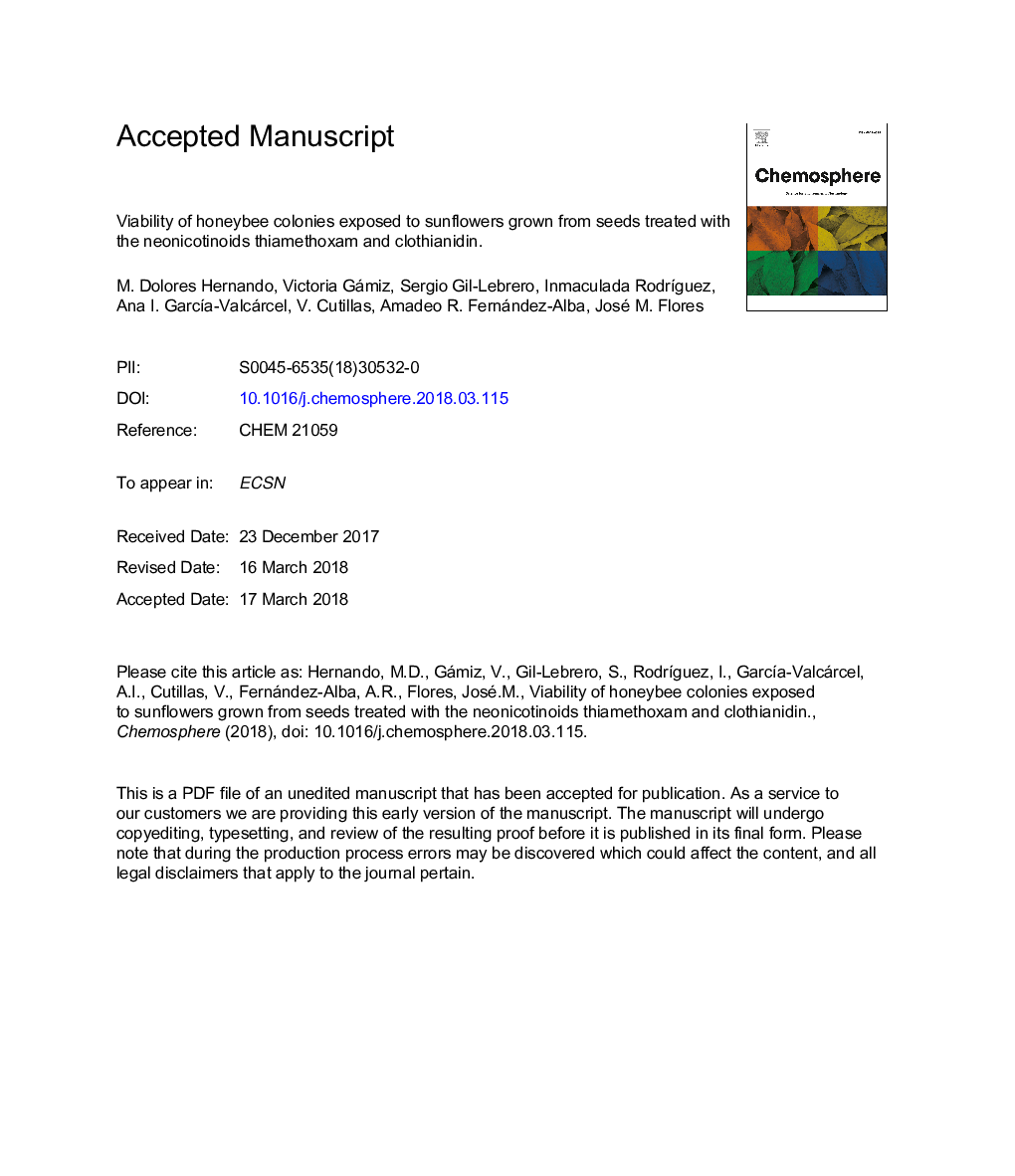| Article ID | Journal | Published Year | Pages | File Type |
|---|---|---|---|---|
| 8851370 | Chemosphere | 2018 | 33 Pages |
Abstract
In this study, honeybee colonies were monitored in a field study conducted on sunflowers grown from seeds treated with the systemic neonicotinoids thiamethoxam or clothianidin. This field trial was carried out in different representative growing areas in Spain over a beekeeping season. The health and development of the colonies was assessed by measuring factors that have a significant influence on their strength and overwintering ability. The parameters assessed were: colony strength (adult bees), brood development, amount of pollen and honey stores and presence and status of the queen. The concentration of residues (clothianidin and thiamethoxam) in samples of beebread and in adult bees was at the level of ng.gâ1; in the ranges of 0.10-2.89â¯ngâ¯gâ1 and 0.05-0.12â¯ngâ¯gâ1; 0.10-0.37â¯ngâ¯gâ1 and 0.01-0.05â¯ngâ¯gâ1, respectively. Multivariate models were applied to evaluate the interaction among factors. No significant differences were found between the honeybee colonies of the different treatment groups, either exposed or not to the neonicotinoids. The seasonal development of the colonies was affected by the environmental conditions which, together with the initial strength of the bee colonies and the characteristics of the plots, had a significant effect on the different variables studied.
Related Topics
Life Sciences
Environmental Science
Environmental Chemistry
Authors
M. Dolores Hernando, Victoria Gámiz, Sergio Gil-Lebrero, Inmaculada RodrÃguez, Ana I. GarcÃa-Valcárcel, V. Cutillas, Amadeo R. Fernández-Alba, José M. Flores,
